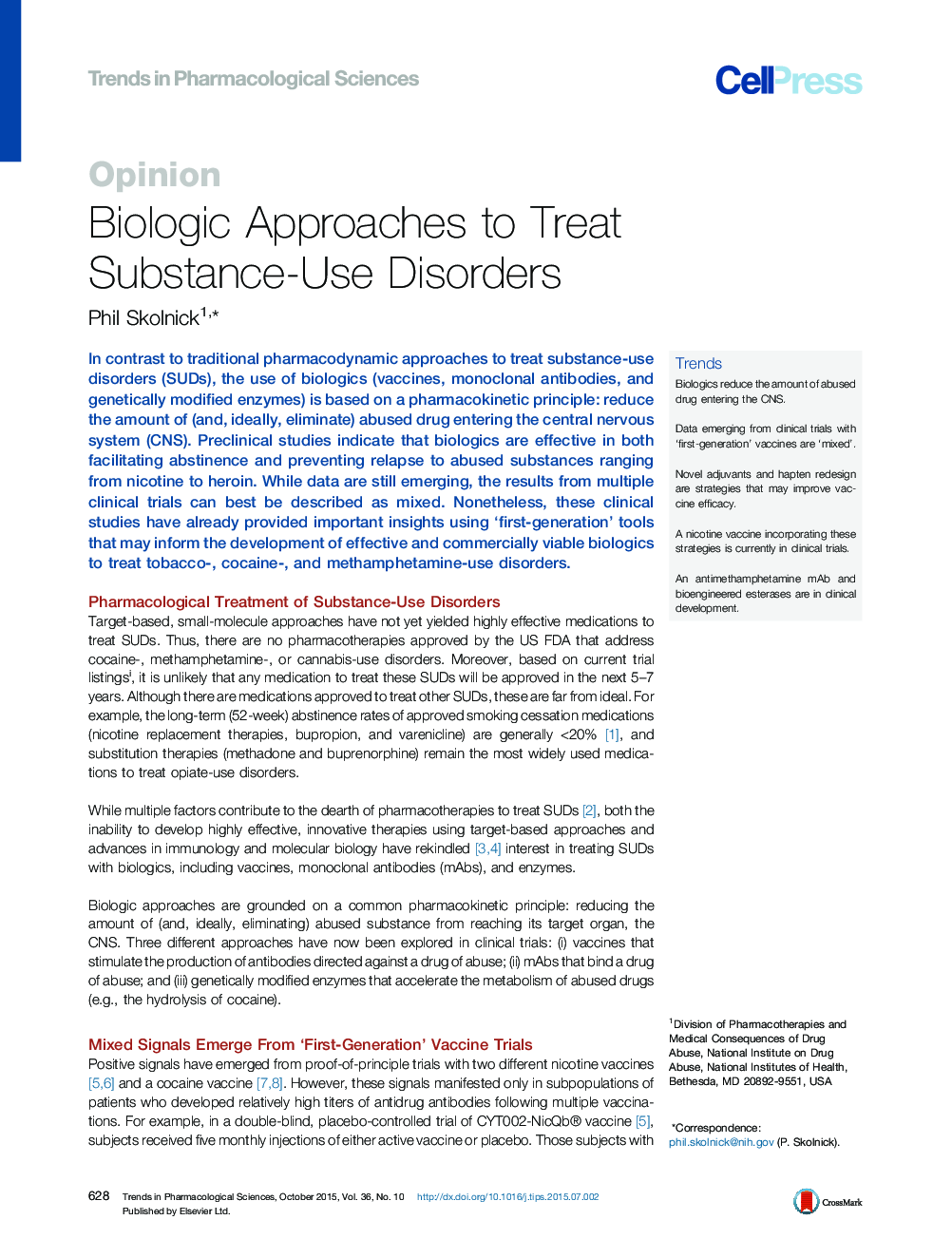| کد مقاله | کد نشریه | سال انتشار | مقاله انگلیسی | نسخه تمام متن |
|---|---|---|---|---|
| 2572481 | 1129300 | 2015 | 8 صفحه PDF | دانلود رایگان |
In contrast to traditional pharmacodynamic approaches to treat substance-use disorders (SUDs), the use of biologics (vaccines, monoclonal antibodies, and genetically modified enzymes) is based on a pharmacokinetic principle: reduce the amount of (and, ideally, eliminate) abused drug entering the central nervous system (CNS). Preclinical studies indicate that biologics are effective in both facilitating abstinence and preventing relapse to abused substances ranging from nicotine to heroin. While data are still emerging, the results from multiple clinical trials can best be described as mixed. Nonetheless, these clinical studies have already provided important insights using ‘first-generation’ tools that may inform the development of effective and commercially viable biologics to treat tobacco-, cocaine-, and methamphetamine-use disorders.
TrendsBiologics reduce the amount of abused drug entering the CNS.Data emerging from clinical trials with ‘first-generation’ vaccines are ‘mixed’.Novel adjuvants and hapten redesign are strategies that may improve vaccine efficacy.A nicotine vaccine incorporating these strategies is currently in clinical trials.An antimethamphetamine mAb and bioengineered esterases are in clinical development.
Journal: - Volume 36, Issue 10, October 2015, Pages 628–635
